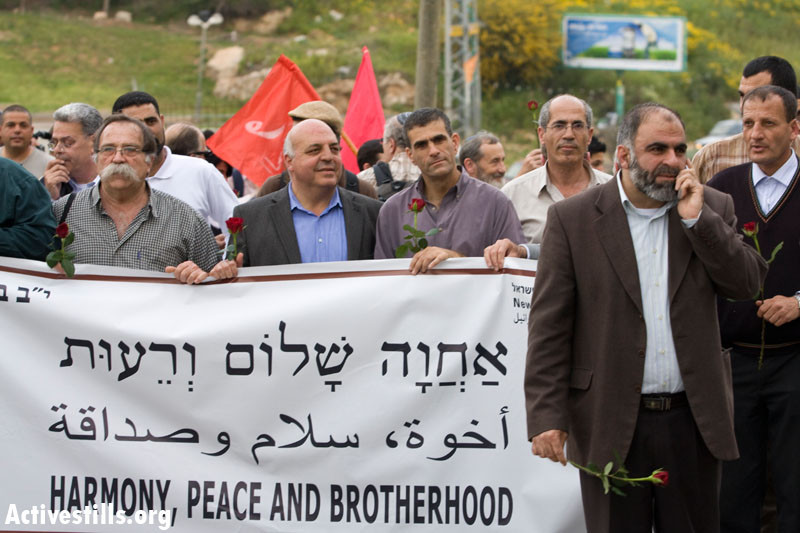A Manipulative Campaign
Israeli Apartheid Week Capitalizes on Bad Habits
This week, Israeli Apartheid Week events will be mounted all across the city with participation from McGill University, the Université de Montreal and Concordia.
Concordia has a long and troublesome history with Israeli affairs. In 2002, pro-Palestinian student activists rioted when Israeli Prime Minister Benjamin Netanyahu was invited to speak.
Determined to keep him from his lecture, the students became violent, breaking windows and damaging property until the event had to be cancelled due to safety concerns. Fortunately, the discourse around the Israeli-Arab conflict at Concordia has become less violent in the past 12 years, but there is still a war of information on campus. It is important students seek out the truth of the situation.
The Arab-Israeli conflict is dense; it is riddled with political, cognitive arguments as well as emotional and historical events. As with any long-standing international conflict there are multiple sides to the story. Israeli Apartheid Week denies that, and presents a clear story: the Arab Palestinian citizens in the Gaza Strip and the West Bank are suffering and it is Israel’s fault.
Nothing could be further from the truth. Israeli Apartheid Week is a manipulative campaign that capitalizes on students’ bad habits, namely laziness.
Presenting information without context and presenting a conclusion without the backstory eliminates the need for students to do research on things like death tolls, for example. Thousands of Arabs and Jews have lost their lives in this ongoing conflict. Every human life is a loss, but by showing that more Palestinians die than Israelis, Israeli Apartheid Week presents Israel as the aggressor and the Palestinians as victims. The campaign “Visualizing Palestine: Infographics Display,” which is on display now at the McGill Faculty of Law, presents synthesized, oversimplified and manipulated statistics that enforce these narratives without presenting a larger picture or reasoning behind the numbers.
Israeli Apartheid Week campaigns rely on media sources that have also presented statistics that include known terrorists as civilians in their lists of casualties. This presentation of facts hides and thereby excuses Hamas’s brutal, human-shield tactics. Hamas’s military centers are in highly populated areas often near schools and hospitals, deliberately endangering the lives of civilians.
Students should be wary of the information presented at Israeli Apartheid Week events; many statistics and “facts” are manipulated or changed to create alarm.
Israeli Apartheid Week is very closely linked to the Boycott Divestment and Sanction campaign, supported by the Graduate Student Association at Concordia. The GSA has stated in some of their BDS publications that one of their goals is to eradicate the Azrieli Institute of Israel Studies at Concordia, as well as to cut academic and economic ties with the Technion-Israel Institute of Technology. These actions would affect many students at Concordia as they would sever ties with some of the leading scholars in Technological, Middle Eastern and Religious Studies.
This campaign again capitalizes on students’ affinity for not doing anything. BDS states that by not buying Israeli goods or supporting Israeli academics students can help improve the lives of thousands of Palestinians. The truth is that supporting BDS cuts off Israeli aid and support for Syrians and Palestinians to be treated in Israeli hospitals.
Israel is not an apartheid state. Apartheid South Africa implemented laws that discriminated against black people to suppress them and create a racial hierarchy. Israel is a democracy where Arabs and Jews (as well as Christians, women and LGBT persons) have equal rights and can be educated, given medical treatment, serve in the military and work in government positions. Because of safety concerns brought upon by suicide bombers, checkpoints, fences and other security measures have been implemented.
These hindrances inconvenience Arabs and Jews, though they are not in place to discriminate but rather to keep Israeli citizens safe from terror. To make the comparison of Israel to South Africa is an insult to the people who suffered through true apartheid in South Africa and those who fought against it worldwide.
Israeli Apartheid Week aims to give students a shortcut to a complicated affair, but ends up presenting falsehoods, only hindering the prospect for peace in the Middle East. Like cram sessions and SparkNotes, shortcuts are not a long term solution and they do not create lasting results.
Time needs to be invested into creating lasting peace between Israelis and Palestinians. Israel has given land for peace before and has since suffered almost 3000 missile attacks from that same land in the last two years alone. To imply that it is only Israel that needs to make concessions and changes implies that the Palestinian Liberation Organization, who encourage armed acts of resistance, are faultless.
Regardless if the ultimate solution is one state, two states, a bi-national state or something else entirely, students need to understand the process of creating lasting peace takes time. Rushing to peace based on misinformation is harmful to everyone. It’s like putting a band-aid over a wound without washing it first, ignoring the severity of the injury and allowing it to become infected and spread diseases to the entire body.
Israeli Apartheid Week does not present a true path to peace or healing, but instead simplifies and distorts the conflict.
In these upcoming weeks I encourage students to be vigilant, attentive and critical of Israeli Apartheid Week and to be smart enough not to be manipulated by their tactics or fall victim to misinformation.
Michelle Soicher is a Committee for Accuracy for Middle East Reporting in America fellow.


_600_832_s.png)


_600_375_90_s_c1.jpg)
__600_375_90_s_c1.jpg)
_600_375_90_s_c1.jpg)